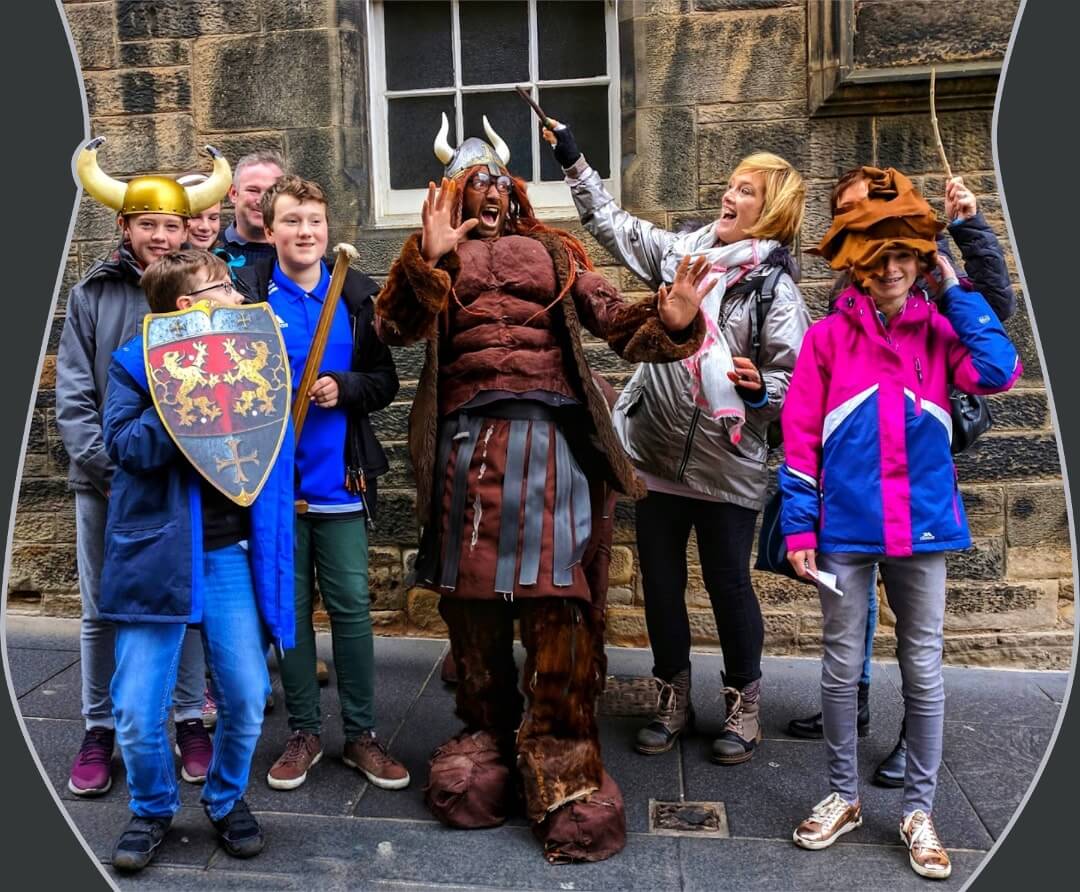

During Rowling's time studying Classics at university, it’s likely she read Machiavelli’s ‘The Prince’ a case study to surviving and attaining glory as a ruler in 16th century Italy.
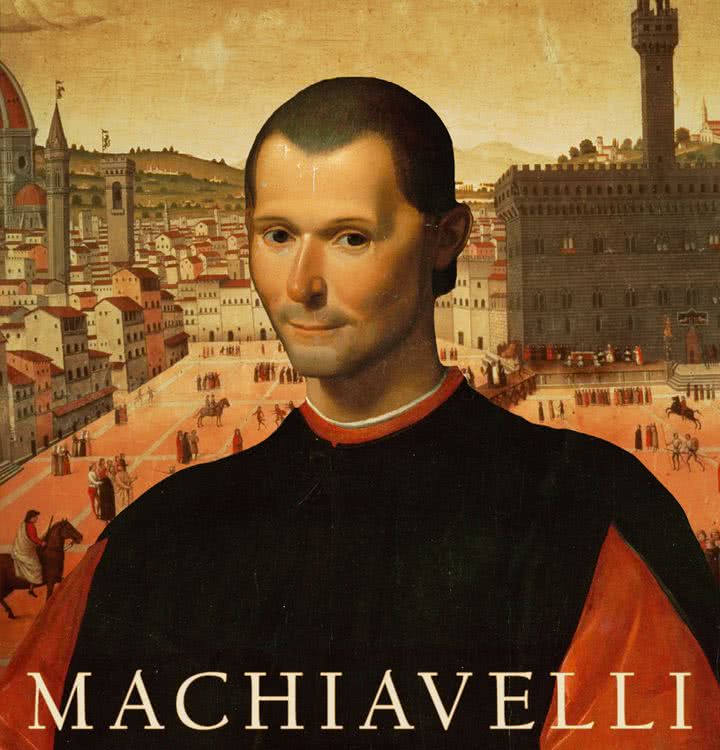
It has such sage advice as
And let it here be noted that men are either to be kindly treated, or utterly crushed, since they can revenge lighter injuries, but not graver. Wherefore the injury we do to a man should be of a sort to leave no fear of reprisals.Not outstandingly practical in the 21st century West, unless you’re particularly adept at the killing curse; while page 4 is clearly Goblin bed time reading. But things were perhaps less straightforward amongst 16th century Princes.
It's possible that 'The Prince' helped to nuance Rowling's calculating professor's psychology, he is after all 'the Half Blood Prince'.
Machiavelli says that a smart leader ought to be both loved and feared but if only one is possible, it should be fear because that’s something within your control.
Since [ a prince ] being loved depends upon his subjects, while his being feared depends upon himself, a wise prince should build on what is his own, and not on what rests with others.Professor Snape was unpleasant and for Gryffindor students remorselessly frightening.
Machiavelli emphasised the importance of earning respect through keeping one's word. In the Half-Blood Prince Snape makes an Unbreakable Vow, to protect Draco, on his mission to kill Dumbledore. The scene broke my heart because I knew it augured tragedy but it also made Snape’s trustworthiness shine.
General Dumbledore’s mission for Snape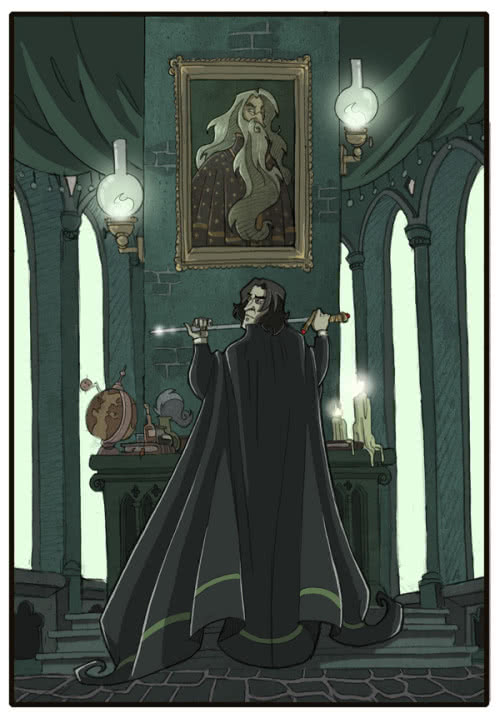
As counsel to murder-happy Voldemort Snape lays layer upon layer of truth and deceit. Machiavelli said a King must be “a fox to recognize traps, and a lion to frighten wolves.”
As a double agent, part of Voldemort’s inner circle, Snape was the fox skirting the traps of Voldemort’s lieutenant Bellatrix Lestrange whilst his confrontations with the timid professor Quirrell in the Philosopher’s Stone was an attempt to frighten a wolf in sheep’s clothing (in disguise).
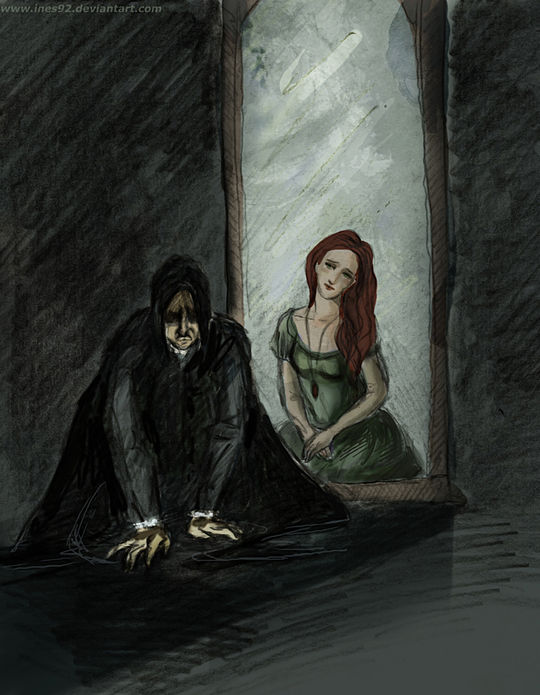
While his lack of grooming was "likely down to him valuing other qualities within himself".
Such as his immense bravery in the face of powerful mind reader Voldemort. Indeed for a time, with steely fortitude and walking Machiavelli's princely tightrope, Snape triumphs and survives.
Snape’s Machiavellian blend of behaviours, together with his soulful motivation, crown him Rowling’s most complex character, Prince of many fan’s hearts. But sadly not top of Rowling's list of preferred dinner companions.
Snape makes the unbreakable vow with Narcissa Malfoy to protect her son Draco, who’s now a freshly minted Death Eater charged by Voldemort to kill Dumbledore; likely a suicide mission. Snape makes a vow of huge cost.
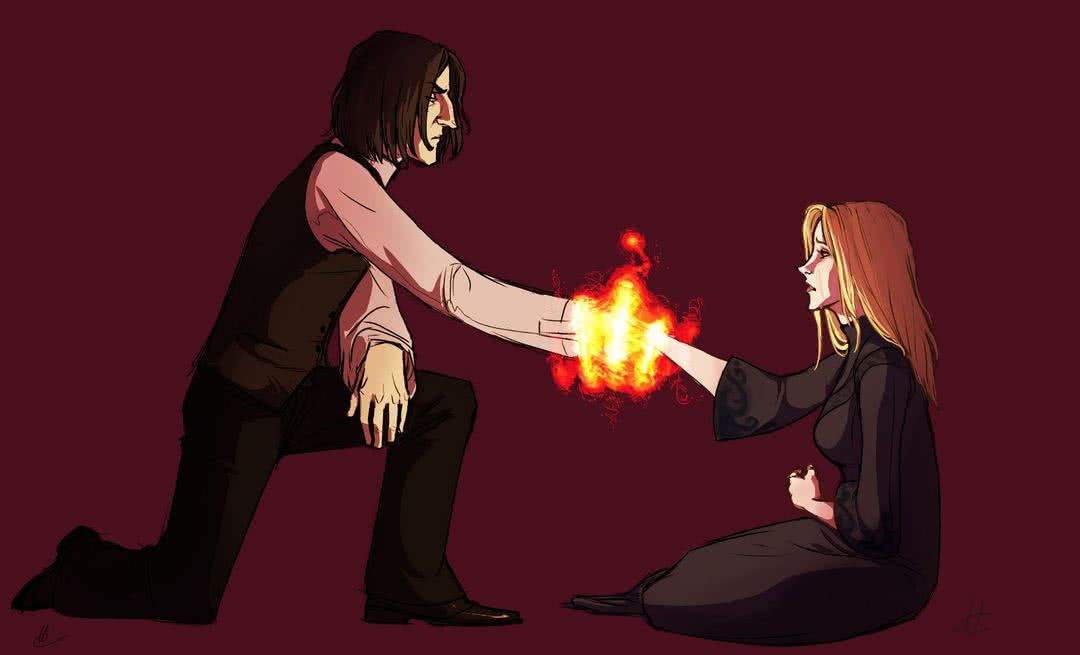
The Greek Gods had their own version, they would swear oaths to one another by the river of the dead - Styx. If they break their vow, they are struck down, lying in a sick trance, “breathless, without voice or spirit, taking no nourishment for a year and then are cut off from the gods and their councils and feasts for nine full years” - Hesiod.
After university Rowling moved to Clapham Junction, London. Every day on her way to work she passed a 'Severus Road'. It lodged itself in Rowling's subconcious.
they moved deeper into the deserted labyrinth of brick houses. At last Narcissa hurried up a street called Spinner’s End, over which the towering mill chimney seemed to hover like a giant admonitory finger.Snape is argued by some as the true hero of Harry Potter, Rowling believes him her most complex: the cruel, tormented hero. When she invented his name, mulling it over Rowling likely enjoyed the serendipitous meanings, ‘to Snape’ means to rebuke or snub a person. The professor is hard on Harry, Neville, and is an antagonist to all Gryffindors, justifying it by labelling them dim.
Groping for a first name out popped Severus. Severus, is latin for ‘strict, harsh, severe’, perfect!
Mulling 'Severus' and 'Snape' over Rowling likely fell for the alliteration, the repetition of sounds ‘S’everuss Sssnape’, sounds very much like it could be Parseltongue, the language of snakes and is suggestive of Snape’s silky and off putting manner.
Rowling finished Harry Potter and the Deathly Hallows in the £300 a night Balmoral Hotel Edinburgh and moved out. The next day cleaning staff found she had graffitied a statue, which leaked to the press.
OK so JK Rowling had said 2 key characters would be killed off. Well Severus died so maybe that meant Professor Snape would, after fighting barbarians? Or restoring a wall... or maybe the liberal world order?
The hotel management crushed them, telling them the bust wasn’t Hadrian thank you very much and no you can’t see the statue, it’s locked in the basement. We are an elite hotel not Mecca. The fans were left tantalised.
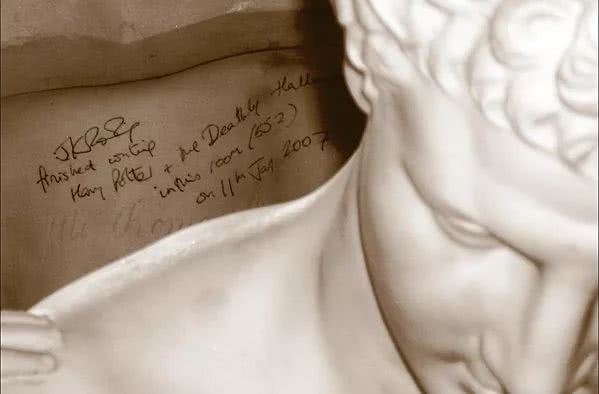
Things have changed, the Balmoral is now immensely proud of their Rowling suite, but still need to protect their guest’s experience. You can see the turreted gothic exterior of the fabulous suite on my Edinburgh Potter Tours
Severus is a Latin name which was used for common folk as well as emperors, it meant 'severe'. Not unlike his hooked nose.
A hooked nose is popularly referred to as a “Roman nose”. But the ancient Romans themselves had their own name for it: "Aquiline". It referred to the hook on the end of an eagle's beak. The Aquiline nose was a prominent feature among Roman nobility a mark of pedigree.
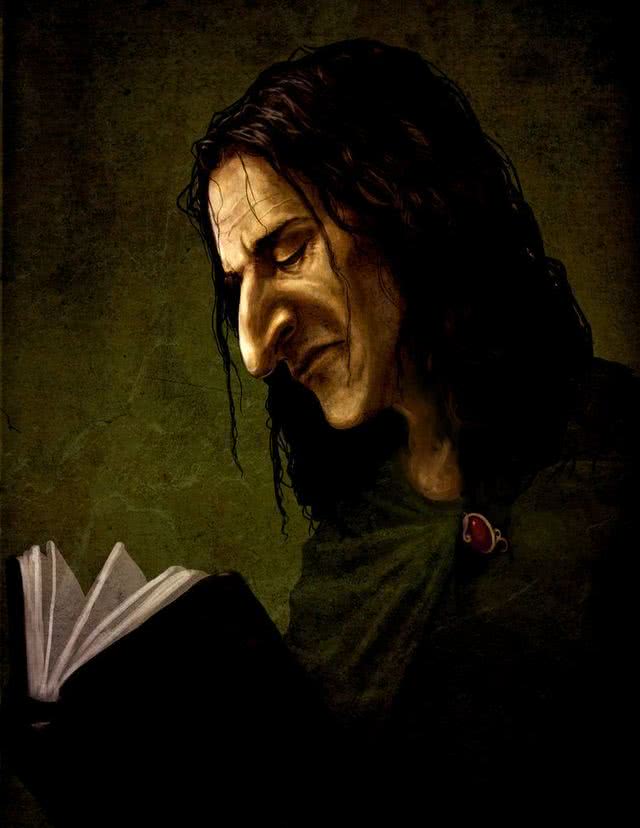
Lily ask Snape about his argumentative father:
Doesn’t he like magic?
‘He doesn't like anything, much’,
Snape’s abusive father was a Muggle, but his mother had magic, her surname was "Prince". As Snape developed his magical capability at Hogwarts, he chose a new identifier ‘the Half Blood Prince’.
The word prince, comes from the Latin word "princeps" which means first citizen of first among citizens. It was the title given to the first rulers of Rome.
The word emperor comes from the Latin "imperator". It was originally used to denote a commander in the Roman Army. When Roman Emperors started maintaining order and asserting supremacy through the army, this is when the emperor took on the name Imperator, signalling they were Commander-in-chief of the military.
So we can divine that Snape and his mother were descended from one of the original Prince families of Roman antiquity.
Publishers were supposed to release their translation within 2 months of the English versions release. But in Italy, readers were so impatient to get their hands on Harry Potter and the Deathly Hallows that they launched “Operation Feather” and sent an obscene number of feathers to Salani’s editors to urge them to rush the translation.
The Italian translator was turbo dedicated, he recognised Rowling carefully chose character names to reflect their personality, but if he maintained the English names this flavouring would be robbed from his Italian readers.
Alas in the race to publish, there was no time to read the whole book and then begin translation so it led to flaws.
The Italian for Minister of magic Cornelius Fudge became Cornelius Caramell; they're both confectionary and it even adds alliteration, which Rowling enjoys. But the translator didn’t know what was ahead and the Minister's name loses nuance.
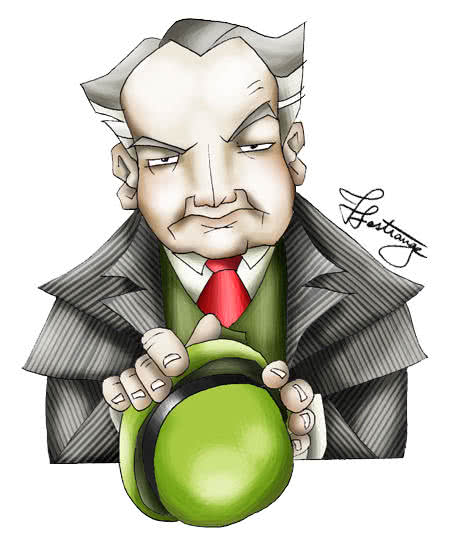
Minister of Magic Cornelius Fudge fudges, or makes nonsense of, the truth. At one point Fudge imprisons Hagrid in the mentally damaging Azkaban, even though he seemingly believes he’s innocent; he does so to keep up appearances.
Fudge makes wrong decisions, for wrong reasons, the wavering ethically-spineless CEO of the wizarding world pandering to public opinion. ‘Caramell’ just sounds delicious.
J.K. Rowling herself complained that the Italian translation of Professor Dumbledore's last name was "Silente"; rather than recognizing that "Dumbledore" was an old Devon word for "bumblebee". Dumbledore's a very suitable name, it sounds cheerful and Rowling's young-old man is always buzzing around in motion.
Alas the time rushed Italian translator took the word "dumb" and translated it as "silent". Powerful figures often don’t speak much, so that’s alright yeah?
William Sutton, The TimesIn 2014 Silani revised the translations, gathering a committee of fresh minds, the original translators, who brought the regrets of hindsight, and a brilliant Italian comic punster adept at playing with words and sounds.
Taking into account every twist and turn of Harry’s complete saga they could properly honour foreshadowing, the ultimate choices of characters and give more thought to how to vividly render the world and atmosphere into Italian.

Voldemort’s birth name was changed from the English Tom Marvolo Riddle, to Tom Orvoloson Riddle in Italian, to facilitate the anagram ‘Son Io Lord Voldemort’.
Mudblood had originally been translated as ‘half-blood’, not greatly worse than calling Hermione ‘brunette’; it was too literal and diffused the stigma. It was reconsidered and translated into the Italian for ‘Rotten Blood’, brutal! It likely thrilled Rowling.
Silani put things right and now Italy has one of the most faithful translations in the world. The new editions are popular in Britain amongst language students and dedicated cultural tourists who use them to pick up Italian grammar and vocabulary.
JK Rowling derived the dancing spell Tarantallegra from ‘Tarantella’ from the dance which originates in Italy. It was a cure administered to victims of Tarantula bites, the idea being they would sweat out the poison. Having developed an Italian spell, she likely thought it would be fun to create a backstory.
Zaccaria Innocenti was an Italian warlock who, in 79 AD, broomed down into Italy’s Mount Vesuvius and cast the dancing spell Tarantallegra on himself, his legs began dancing uncontrollably on the crater’s hardened lava.
Co-incidentally or not, Vesuvius erupted shortly after destroying the city of Herculaneum and Pompeii and burning at least 1500 to death.
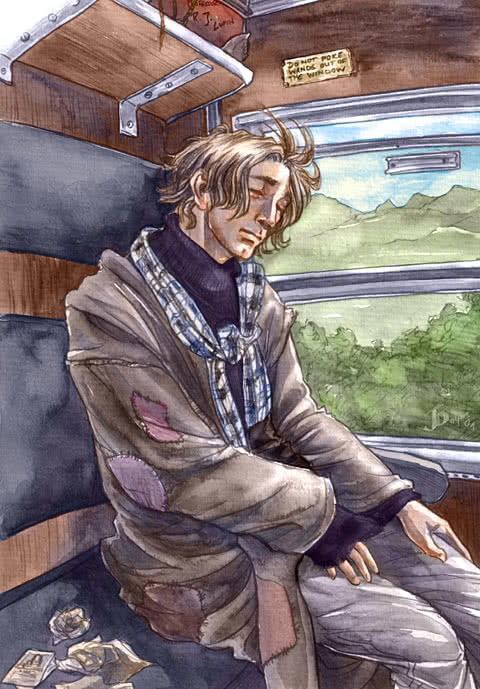
When their uncle seized power from their father the baby brothers were left on the banks of the river Tiber to die.
They were saved by the God Tibernius, father of the river, sweeping them away.
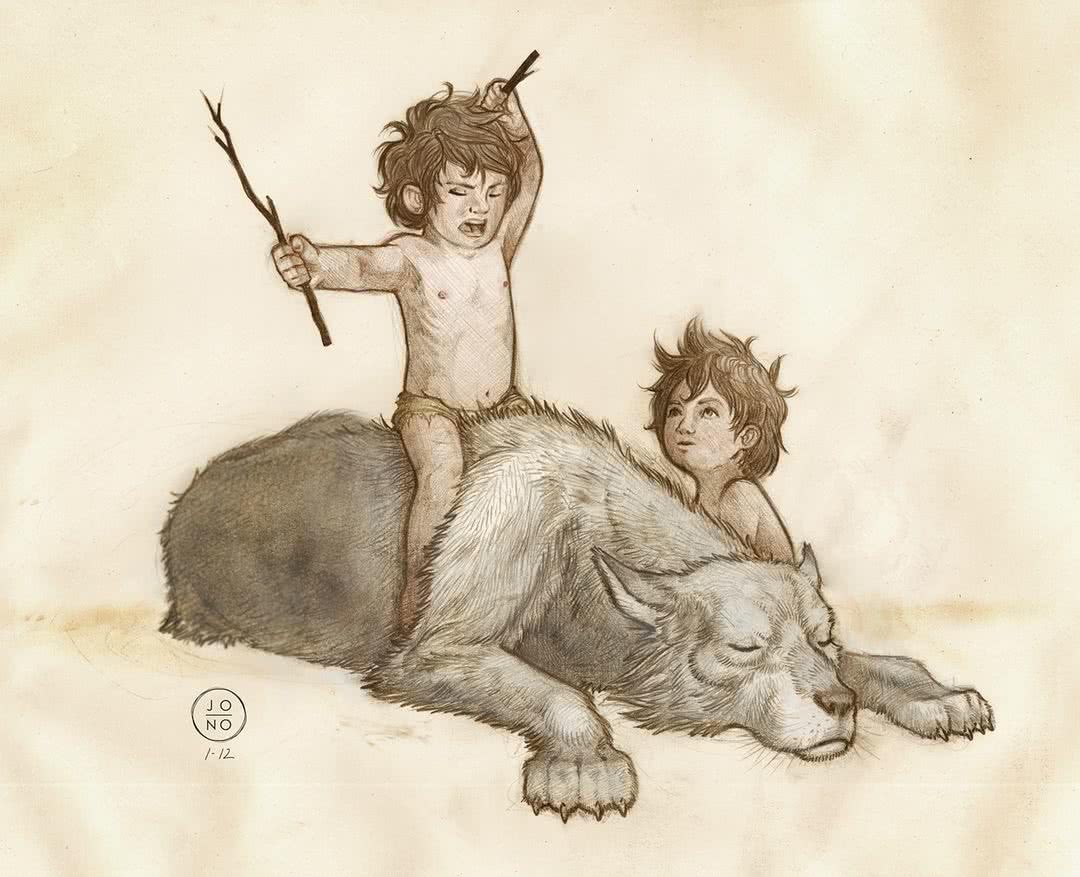
As youths Remus is captured & enslaved by their uncle's regime. The brothers overthrew their uncle, reinstating their grandfather.
Rather kindly they then clear off to found their own kingdom. In an argument over which of the 7 hills to build upon, Romulus kills Remus and founds Rome. Rowling’s Lupin also doesn’t survive to see the beginning of a new era.
Professor Lupin is brotherless in Harry Potter but on Potterwatch the code word for him was ‘Romulus’, Deatheater’s not being great readers of Roman antiquity.
It’s speculated by some thoughtful fans that Remus' intense rivalry with Romulus indicates Lupin's ongoing struggle with his other side, the werewolf.
Professor Lupin’s patronus is a regular wolf. They are sociable creatures, indeed as with Romulus and Remus, Kipling’s Mowgli is also reared by wolves. But werewolves are stigmatised so the professor seldom casts his full corporeal Patronus since it might reveal his furry problem.
Canis lupus is the scientific name for the wolf and in latin "Lupin" means "wolf-like". If you describe someone as "lupine" it means to "resemble a wolf", perhaps they have a sharp tooth smile, or howl, or are secretly a werewolf that eats nothing but humans.
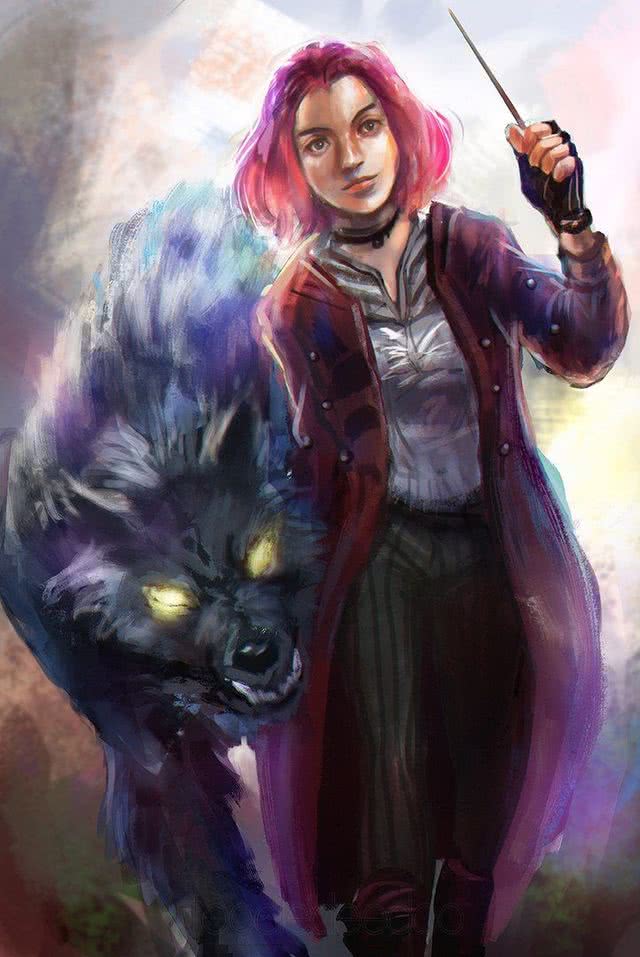
So my incredible Italian & Italophile friends you have made it so far, I salute you! I'd love you to come on my Potter tour, although beware, I don't get any briefer!
Edinburgh's longest Potter tours
Jonathan Mahoney's Remus & Romulus
Professor Remus Lupin asleep on the Hogwarts Express
Tonks & the wolf by Typical Potterhead
Cornelius Fudge by jlestrange
Portrait of Roman nose Severus
by HapticMimesis
Snape & the sword of Gryffindor by Davoneous
Greek and Roman Allusions By Richard A. Spencer
Help me out
If you enjoyed this article, please share it with your friends.
NEW: Cycle tours of Edinburgh tracking JK’s ascent with a splash of Harry Potter inspirations.
Discover where Edinburgh’s most celebrated adopted daughter has lived, written & mastered Minecraft with her son, for the last ~30 years.
Sweep through sleepy villages down past tranquil lochs, wind up cobbled alleys & a craggy volcano to take in the domed encrusted skyline of ‘The Athens of the North’. An invigorating ½ day pedal around JK Rowling’s true home.

